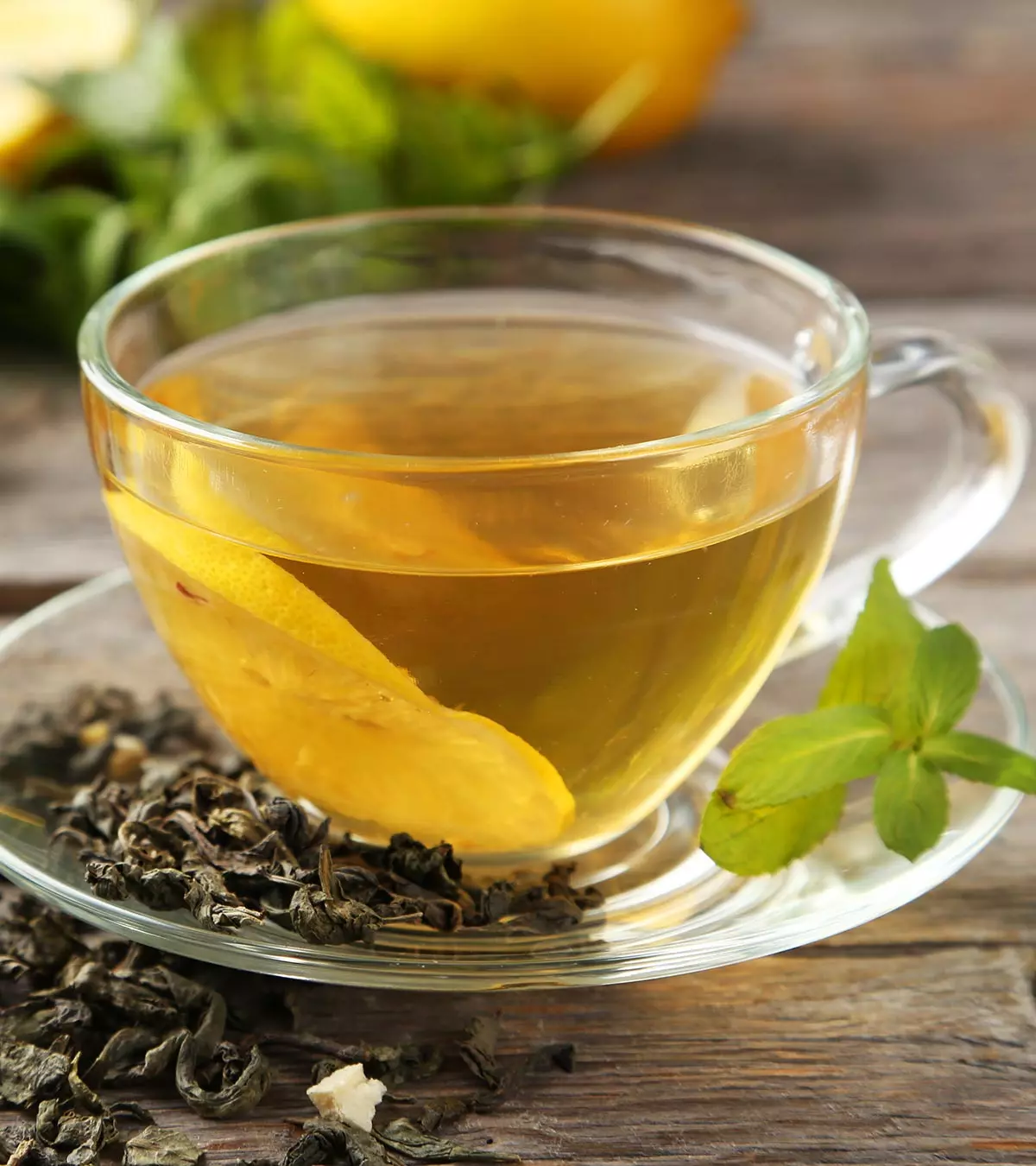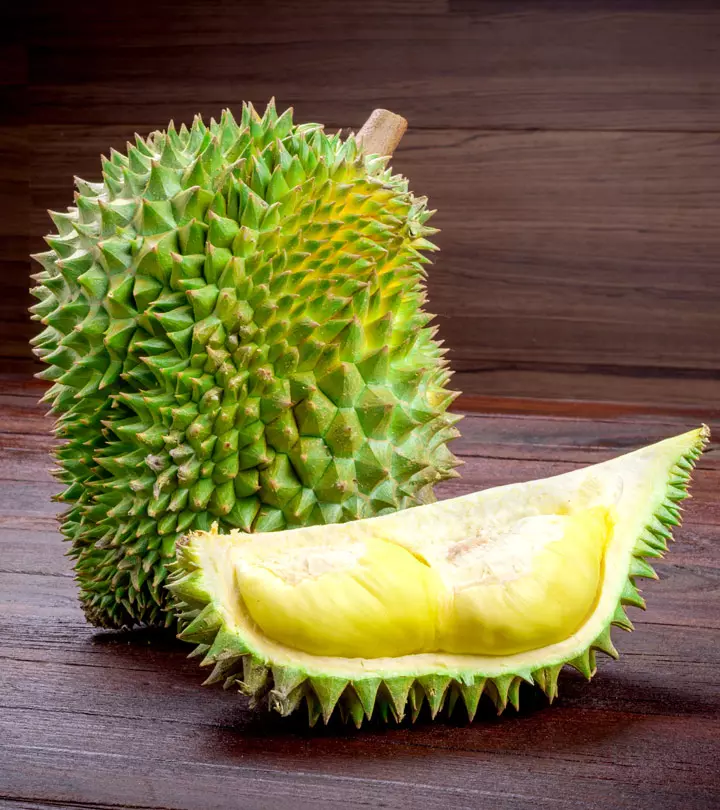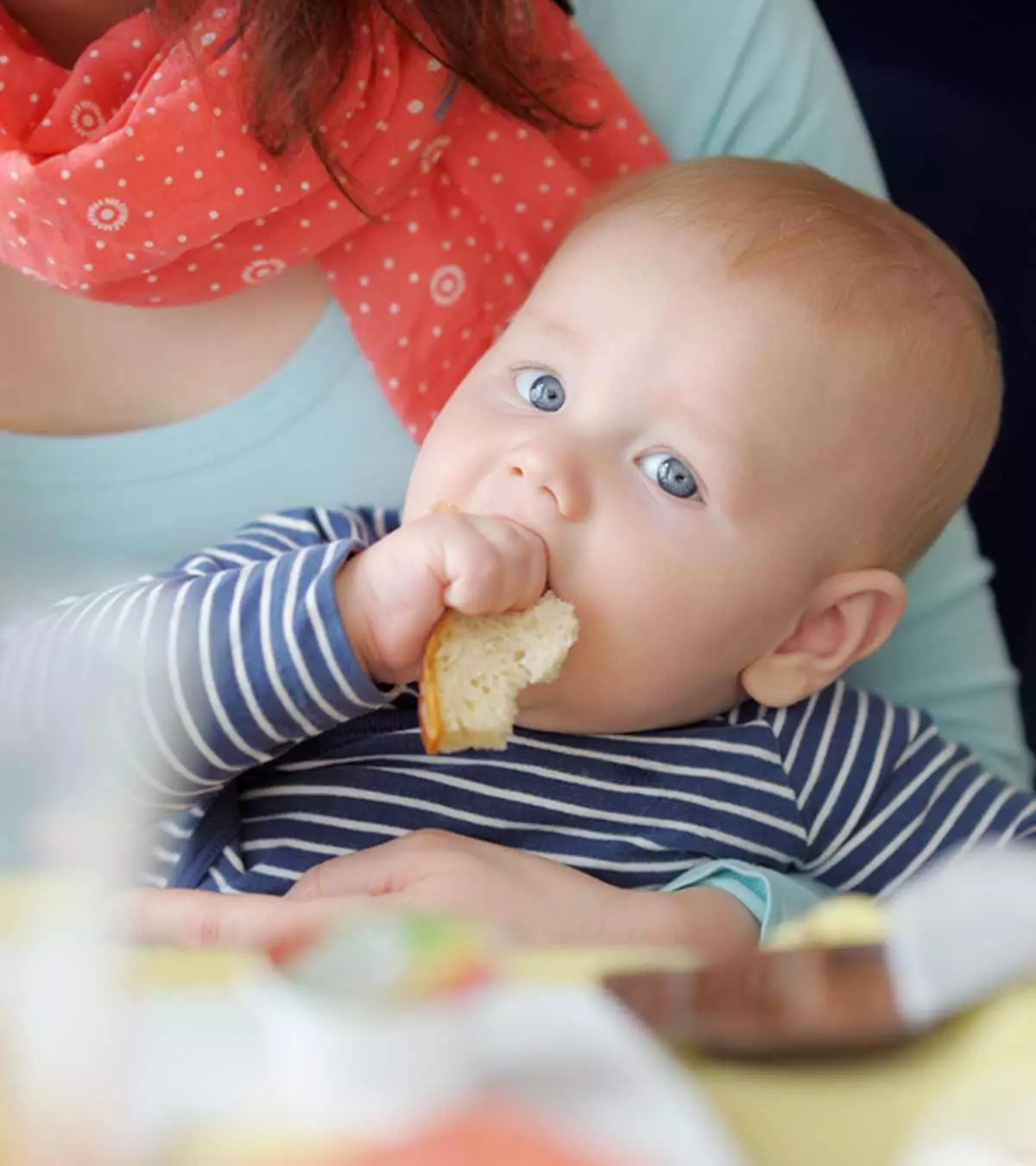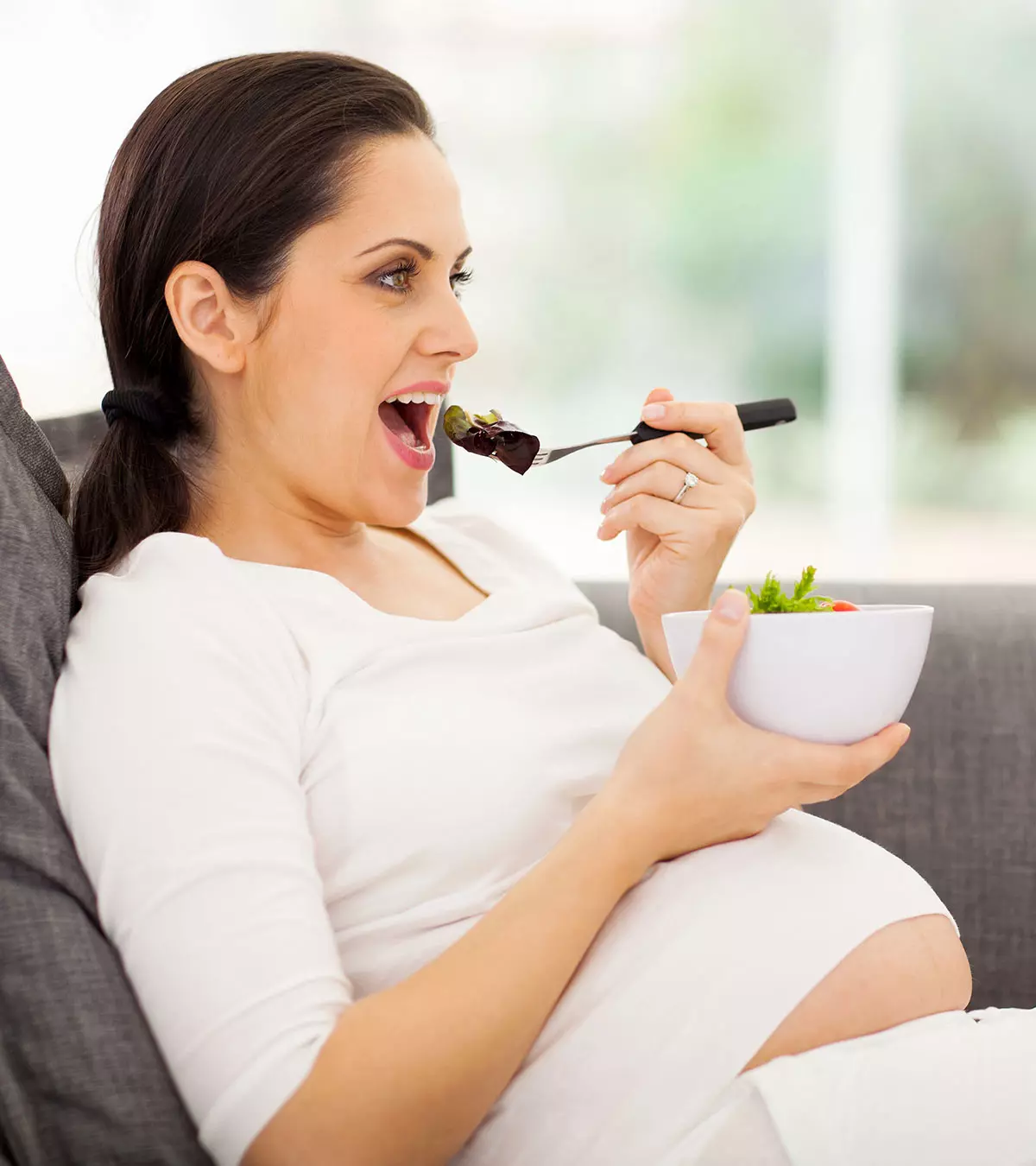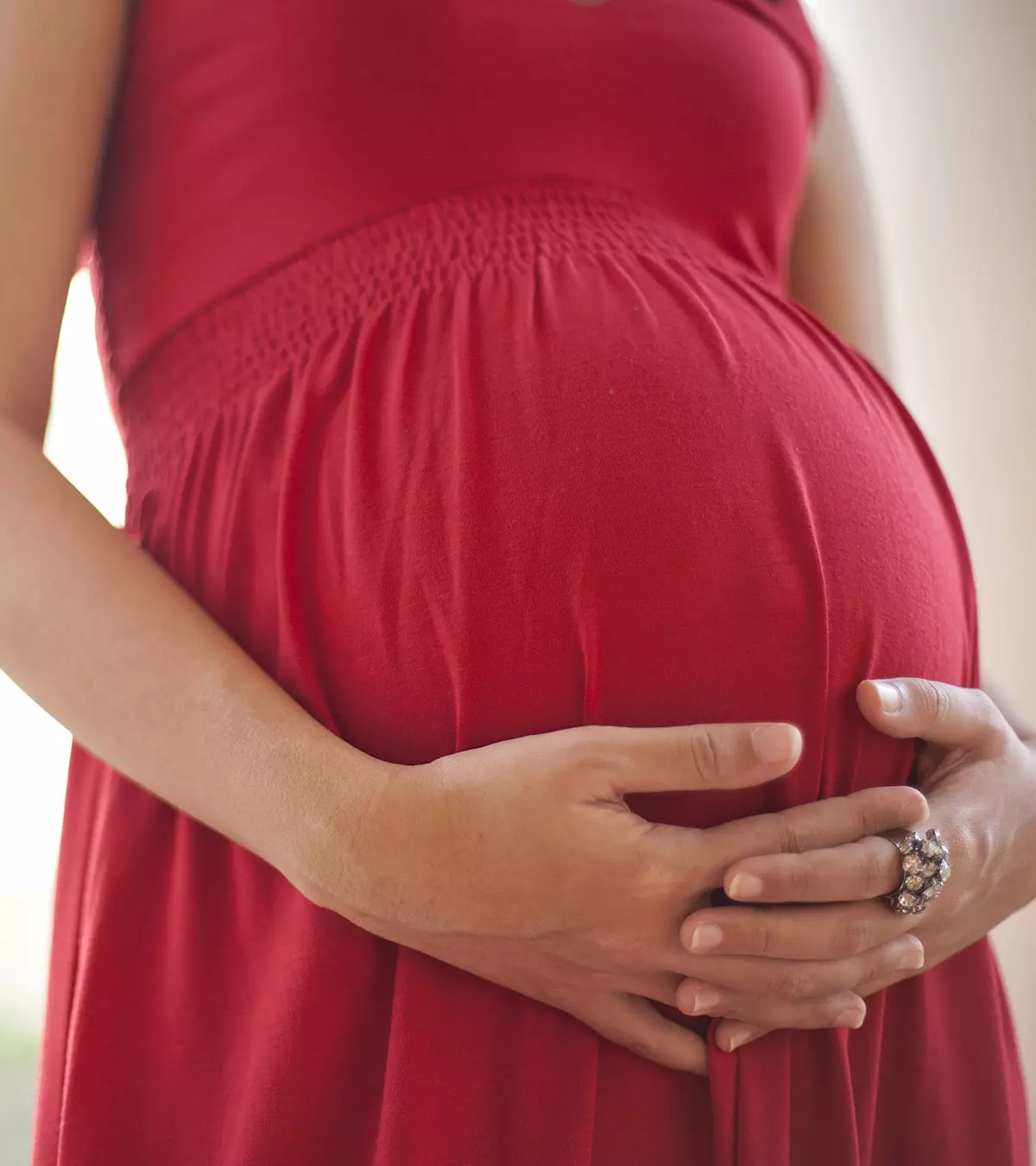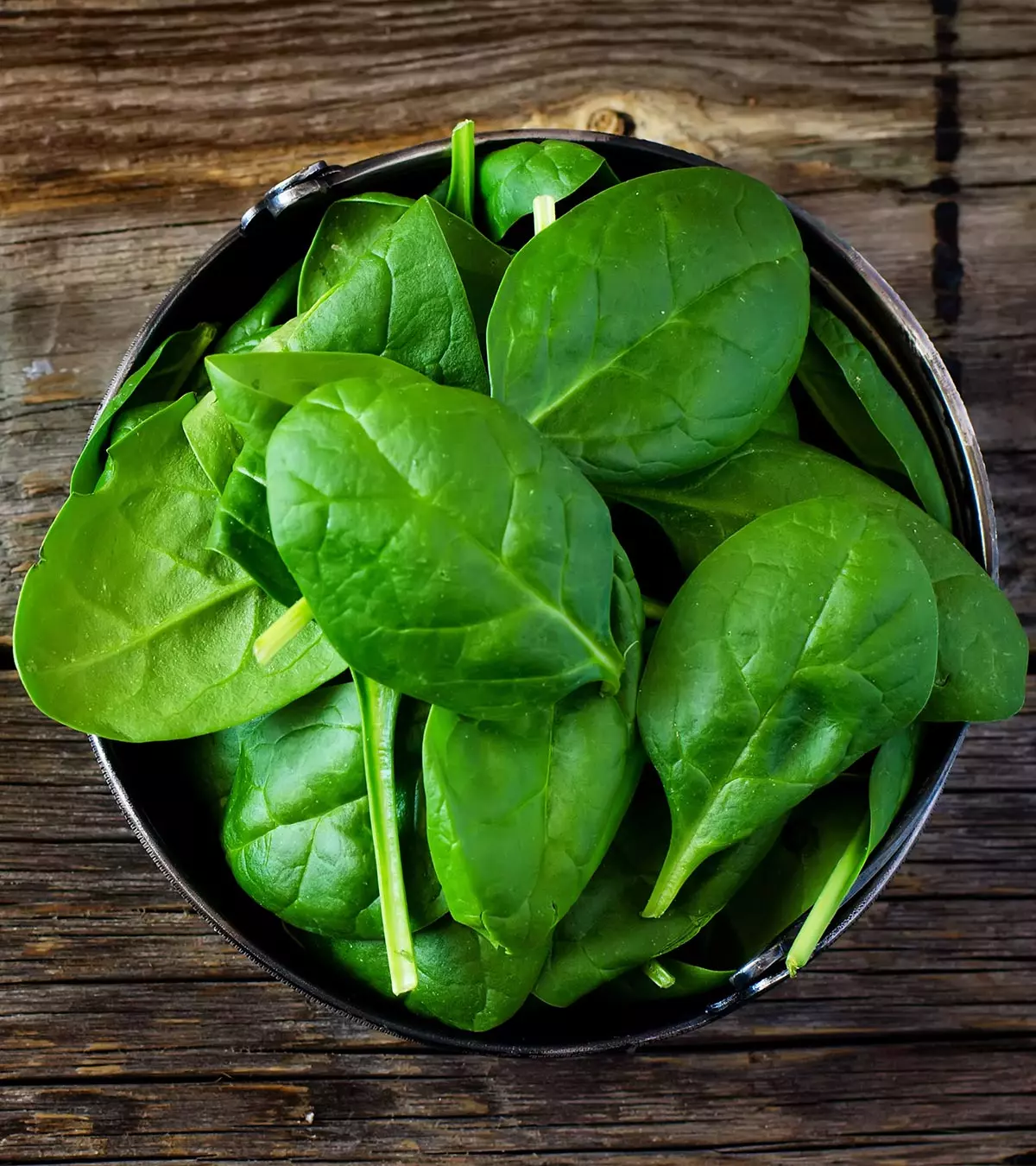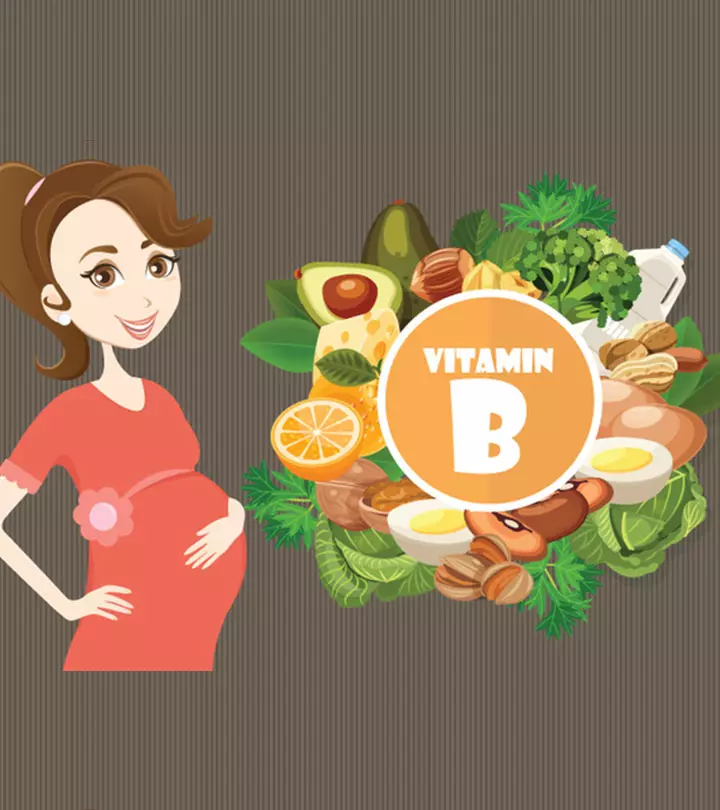
Image: ShutterStock
Nutritious food plays an important role in ensuring a healthy and risk-free pregnancy. However, many women are apprehensive about consuming meat, such as ham during pregnancy. Pregnant women should be cautious about eating undercooked or raw meat as it risks infections. When such infections are transferred to the fetus, they might cause several adverse effects. Although the risk of infection remains low, it is important to consult a doctor before consuming ham. Read the post to know more about the safety and risks associated with the consumption of ham during pregnancy and the important tips to follow.
Key Pointers
- Consuming ham during pregnancy could be risky and may lead to infections such as listeriosis, which may result in adverse pregnancy outcomes.
- Eating raw meat could also increase the risk of miscarriage and other pregnancy complications.
- Pregnant women should follow safety precautions such as washing food thoroughly, cooking meats completely, and avoiding undercooked or raw meat.
- Consultation with a doctor is advised before consuming ham during pregnancy.
Risks Of Meat Consumption During Pregnancy

Image: Shutterstock
Meat is a good source of protein, and is an important part of the diet too. However, consumption of undercooked meats including clams, raw oysters, sushi, unpasteurized eggs and even raw cookie or cake dough could pose several health risks. This is because these undercooked foods tend to contain E.coli, Campylobacter, Salmonella, or Toxoplasma gondii , which may raise your risk of being affected by several health conditions (such as food poisoning and toxoplasmosis), and possibly even affect you adversely during pregnancy (1).
Other foods like hot dogs and luncheon meats also tend to contain bacteria known as Listeria monocytogenes, which causes a condition known as listeriosis. The Centers for Disease Control and Prevention (CDC) states that pregnant women are 10 times more likely to be affected by Listeriosis than others. If allowed to progress, listeriosis may also lead to stillbirth, miscarriage, and other serious health problems (2).
While the risk of being affected by this infection is relatively low, it is still a concerning factor. In addition, it is important to note that your body is relatively vulnerable during pregnancy, which is why, it is best to stick to the consumption of foods that have little or no risk of any health concern associated with their consumption.
Is it Safe to Eat Ham While Pregnant?

Image: Shutterstock
According to the NHS, pregnant women can consume cold-cured meats like salami and Parma ham safely during pregnancy with a very low risk of being affected by food poisoning or infections (2) (3). But remember, the risk is still there. It is important to note that while these infections may be mild for your body, they may turn out to be serious for your baby. In fact, having listeriosis or salmonellosis during pregnancy could increase your chances of transferring the infection to your baby, which could also lead to premature delivery or neonatal death.
Trista Best, a registered dietitian from Dalton, Georgia, says, “Pregnant women are advised to avoid cold cuts like ham because of the potential risk of Listeria monocytogenes, a bacteria that can cause severe complications during pregnancy. Listeria tends to thrive in cold environments, making cold cuts a potential source of contamination. Nevertheless, heating cold cuts until steaming hot before consumption kills the bacteria, making them safe for pregnant women.”
Basically, consuming ham during pregnancy could be risky.
 Did you know?
Did you know?How To Consume Ham Safely During Pregnancy?
While it is best to avoid consuming ham and other undercooked meats, like clams, oysters, and sushi, or undercooked or unpasteurized eggs in cookie or cake dough during pregnancy, there are certain ways to reduce your risk of being affected by the harmful effects associated with its consumption (1).
- To ensure safety and promote healthy eating during pregnancy, it is best to thoroughly wash everything you consume, including fruits and vegetables.
- Make sure all your meats are completely cooked before you consume them- raw foods, particularly meats, are more likely to transmit live bacteria, viruses, and foodborne illness.

Image: Shutterstock
 Quick tip
Quick tip- Re-heat all foods until they are steaming hot before you consume them- using a thermometer to check the temperature of the foods is a good idea.
- Ideally, raw ham should be cooked at 160F and precooked ham must be cooked at 140F for it to be healthy and safe for consumption among pregnant women. (4)
- When eating out at restaurants, avoid foods that contain deli meats during pregnancy, as these meats are often not reheated.
- Ask for hard cheese options as opposed to soft cheese.
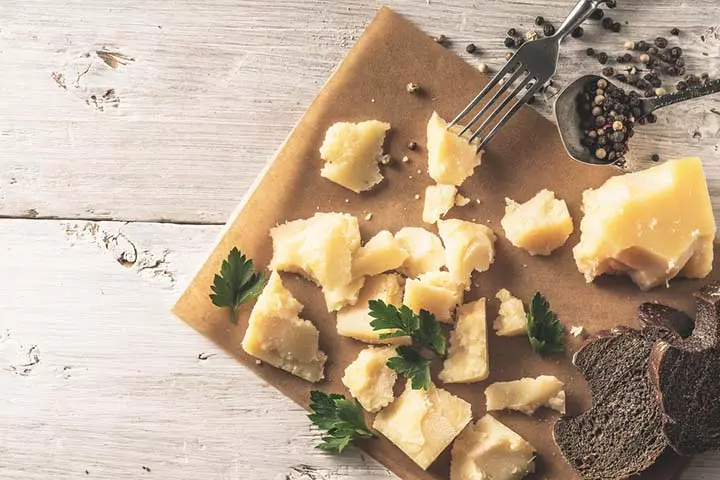
Image: Shutterstock
- Avoid choosing refrigerated meat spreads and smoked seafood that is refrigerated. Make sure you heat everything well before consumption, preferably until it is steaming hot.
- Choose home cooked ham as opposed to store-bought versions. Make sure you cook it thoroughly before consuming it.
Janeal Yancey, a mom of two with a Ph.D. in meat science, offers her expert opinion on consuming deli meats during pregnancy. She says,” If I must eat deli meats, I heat them up in some way. Either I stick them in the microwave until they steam, or I boil them. Hotdogs are great on the grill or boiled, but they can be microwaved, too (i).”
Frequently Asked Questions
1. Can I eat ham if I have gestational diabetes?
You may consume ham cooked through low-fat methods, such as baking. Avoid adding sugar or other sweeteners to the ham during the cooking process. Also, have ham in moderation since it tends to be rich in saturated fat (6) (7).
2. Can ham help with iron-deficiency anemia during pregnancy?
3. Can I eat ham on pizza when pregnant?
According to Alabama-based registered dietitian and maternal nutrition specialist Alicia Chacha Miller, “Indulging in ham on pizza during pregnancy is fine, provided it’s thoroughly cooked. While I’d recommend avoiding leftover cold pizza with ham, a freshly served, piping hot slice poses minimal risk for pregnant women. However, you must ensure the cheesy delight is nice and hot, and you’re good to go!”
4. What alternatives to ham are safe during pregnancy?
If you wish to avoid ham and other cold-cured cuts of meat during your pregnancy, fully cooked chicken, turkey, fish, and eggs are safe sources of protein to choose from. You can also consider plant-based proteins to enrich your diet.
Meat is a good source of protein and other nutrition; however, it might not be completely safe during pregnancy. Raw or undercooked meat may raise the risk of infections. Although eating some varieties of ham during pregnancy causes little risk, you should be cautious about its consumption to ensure food safety while pregnant. They may lead to infections such as listeriosis, resulting in miscarriage, stillbirth, and other pregnancy-related complications. Therefore, if you wish to include ham in your diet, you should reduce its risks by washing it thoroughly before consumption, cooking it completely, and avoiding eating it at restaurants. If you have any questions about the safety of eating ham during pregnancy, consult a doctor for the best advice.
Infographic: Potential Risks Of Eating Meat In Pregnancy
Meat and products are usually safe but require particular emphasis during pregnancy. Consuming raw or uncooked meat can be harmful to the mother and the fetus. In this infographic, we shed light on some adverse effects of eating meat during pregnancy and provide advice on how to eat better. Illustration: Momjunction Design Team
Illustration: Is It Safe To Eat Ham During Pregnancy?
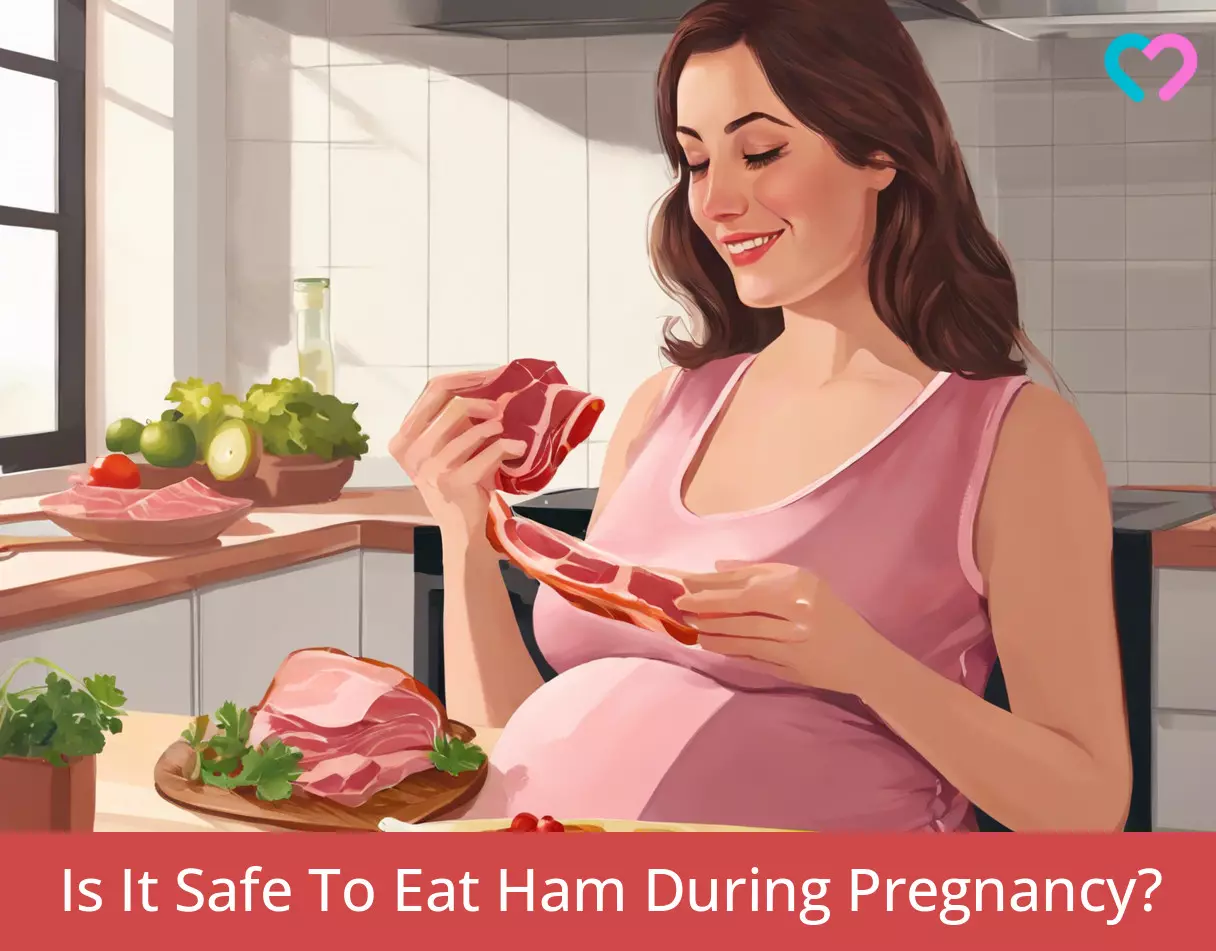
Image: Stable Diffusion/MomJunction Design Team
Personal Experience: Source
MomJunction articles include first-hand experiences to provide you with better insights through real-life narratives. Here are the sources of personal accounts referenced in this article.
i. The mom at the meat counter is expectinghttps://momatthemeatcounter.blogspot.com/2013/08/the-mom-at-meat-counter-is-expecting.html
References
- People at Risk: Pregnant Women
https://www.foodsafety.gov/people-at-risk/pregnant-women# - Foods to avoid when pregnant.
https://www.pregnancybirthbaby.org.au/foods-to-avoid-when-pregnant - Foods to avoid in pregnancy.
https://www.nhs.uk/pregnancy/keeping-well/foods-to-avoid/ - Listeria During Pregnancy.
https://americanpregnancy.org/healthy-pregnancy/pregnancy-concerns/listeria-during-pregnancy/ - Parasitic Worm Infection During Pregnancy.
https://americanpregnancy.org/healthy-pregnancy/is-it-safe/parasitic-worm-infection-during-pregnancy/ - Gestational Diabetes Mellitus (GDM) Meal Plan.
https://intermountainhealthcare.org/ckr-ext/Dcmnt?ncid=520921801 - Gestational diabetes diet.
https://medlineplus.gov/ency/article/007430.htm - 52 Foods High In Iron.
https://health.clevelandclinic.org/how-to-add-more-iron-to-your-diet - Iron-rich Foods for Pregnancy.
https://americanpregnancy.org/healthy-pregnancy/pregnancy-health-wellness/iron-rich-foods-for-your-pregnancy/
Community Experiences
Join the conversation and become a part of our nurturing community! Share your stories, experiences, and insights to connect with fellow parents.
Read full bio of Shivani Sikri
- Alicia Chacha Miller is a registered dietitian specializing in maternal and pediatric nutrition. She holds an MS in Nutrition Science from the University of Southern California and founded Cardamom Nutrition.
 Alicia Chacha Miller is a registered dietitian specializing in maternal and pediatric nutrition. She holds an MS in Nutrition Science from the University of Southern California and founded Cardamom Nutrition.
Alicia Chacha Miller is a registered dietitian specializing in maternal and pediatric nutrition. She holds an MS in Nutrition Science from the University of Southern California and founded Cardamom Nutrition. - Trista Best is a registered dietitian at Balance One Supplements, Environmental Health Specialist, and Adjunct Nutrition Professor. She completed her Masters of Public Health Nutrition from Liberty University and BS Dietetics from the University of Alabama before getting Dietitian Registration in 2018.
 Trista Best is a registered dietitian at Balance One Supplements, Environmental Health Specialist, and Adjunct Nutrition Professor. She completed her Masters of Public Health Nutrition from Liberty University and BS Dietetics from the University of Alabama before getting Dietitian Registration in 2018.
Trista Best is a registered dietitian at Balance One Supplements, Environmental Health Specialist, and Adjunct Nutrition Professor. She completed her Masters of Public Health Nutrition from Liberty University and BS Dietetics from the University of Alabama before getting Dietitian Registration in 2018.
Read full bio of Ria Saha
Read full bio of Swati Patwal
Read full bio of Dr. Joyani Das












